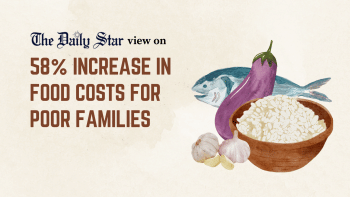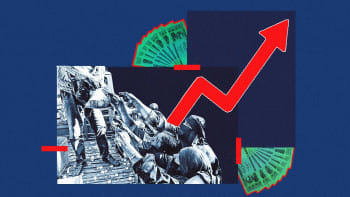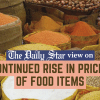Don't turn essential items into unaffordable luxuries

It is vital to ask—and seek a solution to—why and for how long local consumers will have to spend more on food compared to those in comparable countries. The Centre for Policy Dialogue (CPD) has recently said that prices of essentials here have surged to such an extent that for many they have become luxury items. We cannot agree more. In 16 countries where GDP per capita is higher than that of Bangladesh, consumers are spending less on food, according to the CPD. The list includes Brazil and Colombia, where the average annual expenditure on food per person in 2022 was $882 and $874, respectively, compared to $924 in Bangladesh. There are also the sanctions-hit Iran, war-ravaged Iraq, and crisis-ridden Sri Lanka, among other countries.
If Bangladesh is doing so well economically—as politicians often like to claim—why is it that people are having to spend so much more on food than in countries that are going through serious difficulties and upheavals? In fact, Bangladesh has been experiencing higher inflation for nearly two years now, exceeding inflation rates in many developed and developing economics. And the burden of it has been disproportionately shared by poor and low-income households.
Having analysed the daily prices of 34 essential food items in Dhaka from January 1, 2019 to May 19, 2024, the CPD found that price increases ranged between 10 percent and 310 percent. For example, the price of coarse rice, consumed mostly by the poor, has increased by 30 percent. Similarly, the price of lentils has gone up by as much as 95 percent since January 2019. Prices of unprocessed and processed flour have been going up in Dhaka since before the outbreak of the Russia-Ukraine war. And all types of soybean oils are pricier in Dhaka's market compared to the international market. The huge difference in these prices and others does not make any sense, with the CPD rightly calling on the government to investigate the alleged involvement of big importers and business groups in price gouging.
We strongly second that call. As we have been repeating in this column, the government must find out why domestic prices are not decreasing in line with pricing trends on the international market, and take effective steps to check inflation. The people—particularly the poor—can no longer afford for it to fail in that regard.


 For all latest news, follow The Daily Star's Google News channel.
For all latest news, follow The Daily Star's Google News channel. 










Comments